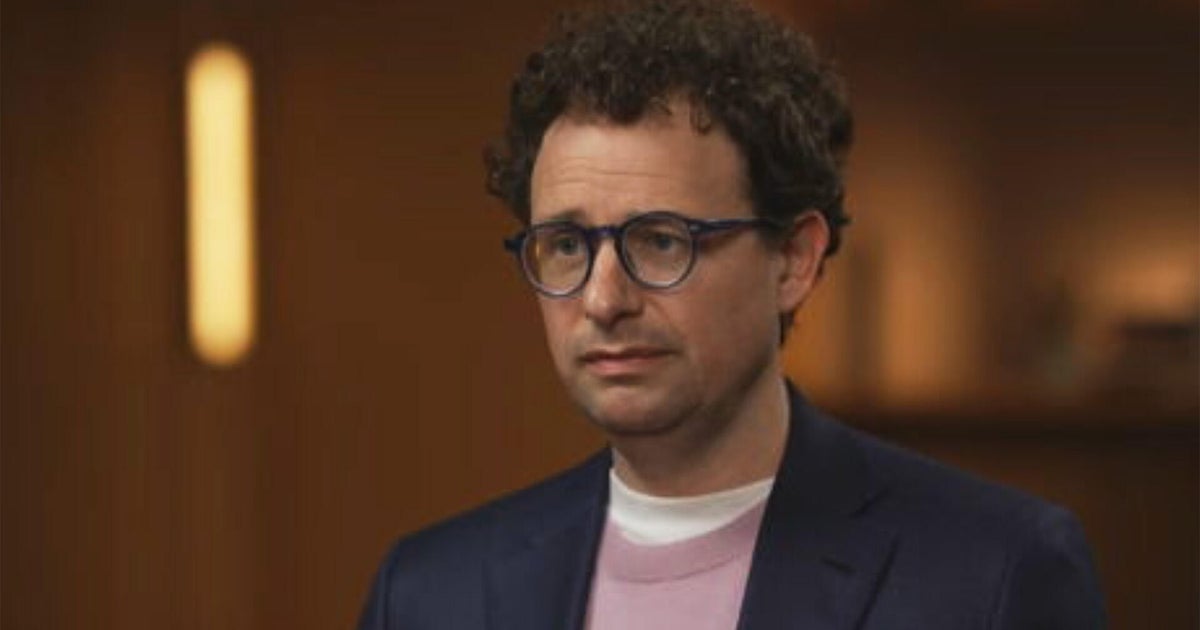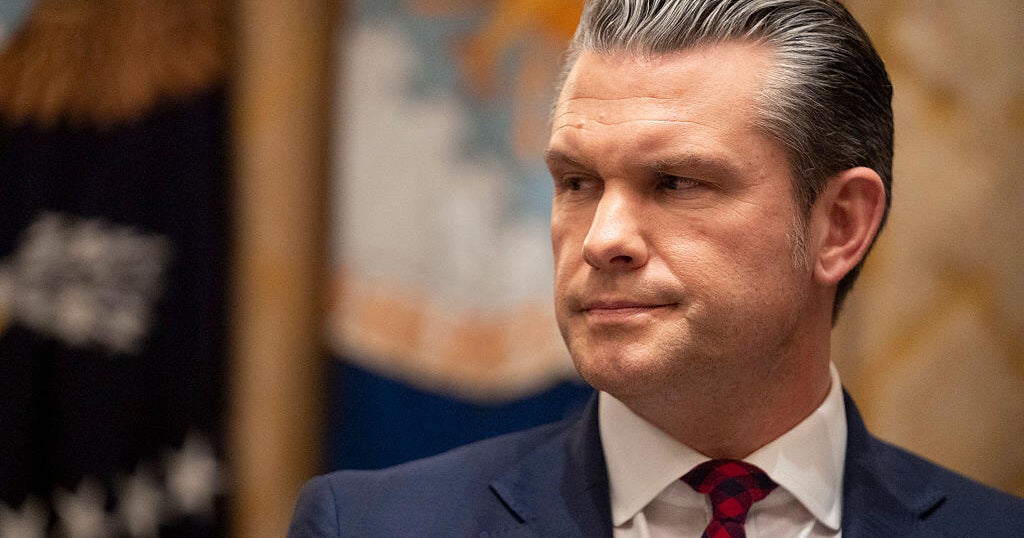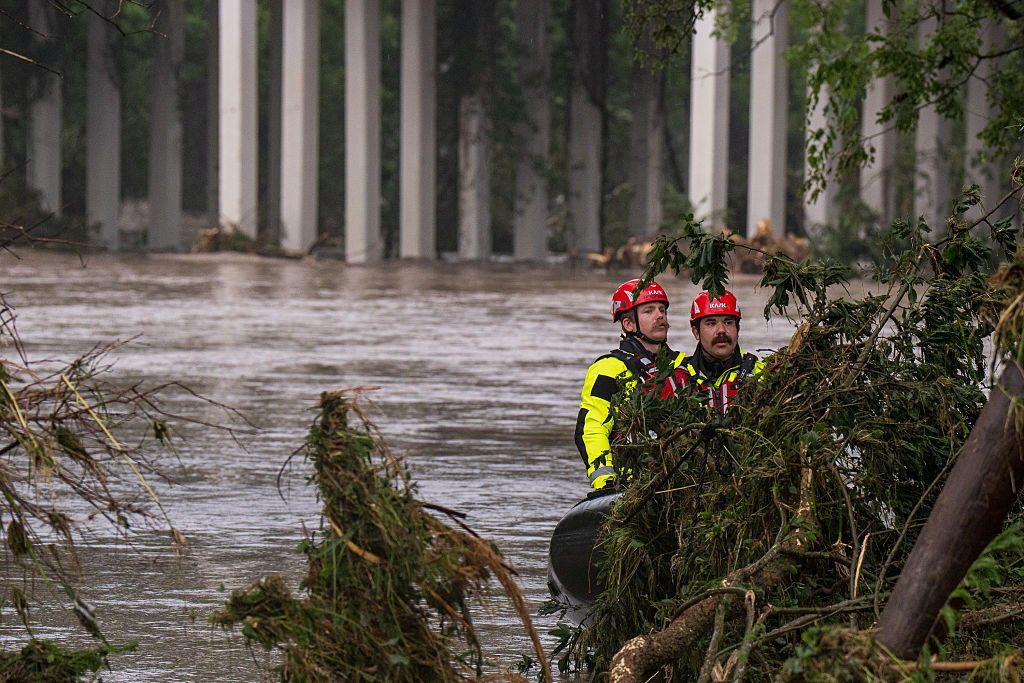Transcript: Brock Long on "Face the Nation," Sept. 3, 2017
It's been a devastating week for Texas and parts of Louisiana in the aftermath of Hurricane Harvey. Tens of thousands of residents have been forced out of their homes, 46 people are confirmed dead, and the economic toll is estimated in the tens of billions.
Areas hit hardest by the storm and floodwaters face a long road to recovery.
On Sunday, "Face the Nation" sat down with FEMA Administrator Brock Long to discuss the federal response to Harvey. He also discussed Hurricane Irma, and what he expects for people in areas hit by Harvey.
A transcript of the interview with Long follows.
MARGARET BRENNAN: We're back with the head of the Federal Emergency Management Agency or FEMA. Brock Long joins us from their headquarters in Washington. It's been a very busy time for you, sir. I appreciate you making the time. Can you tell us - the White House has already asked for about $7 billion, expect billions more to be needed in Houston quite soon. How much money does FEMA need to help this recovery?
BROCK LONG: That's hard to estimate right now. Obviously not only is the president fully engaged. You know, his staff, Tom Bossert, Secretary Duke, all of us are working together to correctly inform the Congress on how to give us the enduring authority to go forward and make sure that we meet the demands for not only Harvey but potentially threatening Irma out there as well. So I feel like what we have going on right now is an excellent communication, you know, with the Congress. And the Congress knows what needs to be done to make sure that we can meet the demands of what's going on.
MARGARET BRENNAN: You mentioned Irma. It appears to be strengthening. What are you expecting from that hurricane?
BROCK LONG: Well, what bothers me about Irma and what we need the U.S. Virgin Islands, and Puerto Rico, and folks down in the southeastern United States as well as the Mid-Atlantic is is that any time a hurricane has a well-defined center of circulation, the confidence in that forecast track is pretty high when it comes from the National Hurricane Center.
The models are in pretty good agreement. Right now we are ramping up. We've already forward deployed commodities into our island territories where we've already forward deployed incident management teams to Puerto Rico as well as the Virgin Islands. So we're shifting focus to Irma as well as maintaining the effort to make sure that we have recovery command established in Texas and Louisiana.
MARGARET BRENNAN: Now when it comes to Harvey, 33 trillion gallons of water dumped on U.S. soil. This has been called a one-in-1,000-year event. Do we need to be prepared for more extreme weather like this? And is the onus on the states rather than the federal government?
BROCK LONG: So I think that's an excellent question. And I need state representatives, state legislative officials, and local elected officials to listen up. This is a call. It is a wakeup call for this country for local and state elected officials to give their governors and their emergency management directors, you know, the full budgets that they need to be fully staffed, to design rainy day funds, to have your own standalone individual assistance and public assistance programs.
This is a wakeup call. People cannot depend solely on the Federal Emergency Management Agency to, you know, be responsible for a majority. You know, states do a lot of work. They do a lot of work. But I think that we all have to collectively sit down after this event and figure out how to collectively improve. As we've all seen--
MARGARET BRENNAN: Are you saying - are you saying there, sir, that Texas should have done more to prepare?
BROCK LONG: No, no, no. Texas is a model. Governor Abbott, Chief Nim Kidd, those guys are a model. What we need are for elected officials at all levels of government to hit the reset button, sit down, evaluate where their programs are with their state emergency directors as well as their local emergency management directors, and make sure that they have everything they need to increase their levels of self-sufficiency. This is a partnership. But this event is one that we're all going to have to sit down, and hit the reset button on, and figure out how we collectively improve.
MARGARET BRENNAN: Your agency oversees the national flood insurance program, which is going to expire at the end of the month unless Congress acts. About 80% or more people in the area hit by Harvey don't have any flood insurance. What are you expecting? Are people there basically on their own?
BROCK LONG: No, people are - it's tough. So individual assistance that's offered up by the Federal Emergency Management Agency is basically just a ray of hope. It's a bridge to kick start recovery. Those who are uninsured are most likely eligible for FEMA's individual assistance program that can help them with a host of things, not only rapid repairs to their homes.
Maybe some, you know, funding for if they've lost their jobs and different things or, you know, rental fees and that kind of thing that they can pay. The bottom line is is that it's not going to be enough to make anybody whole.
The other thing is that, you know, in this country, you know, federal disaster recovery support comes from a multitude of agencies. Also the SBA will be offering up low-interest loans to those as well because they have a disaster declaration. HUD funding kicks in. So what we have to do is help citizens understand what they're entitled to to kick start their recovery.
MARGARET BRENNAN: Brock Long at FEMA, good luck to you, sir.
BROCK LONG: Thank you.
MARGARET BRENNAN: We'll be back in a moment.




